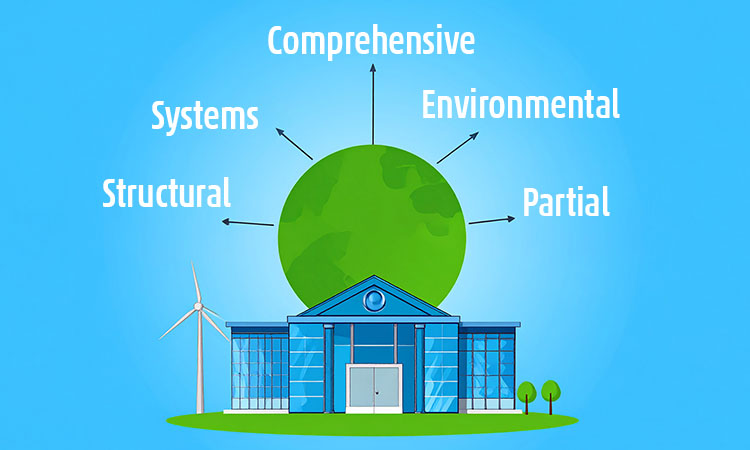The three main categories of commercial property inspections are environmental, systems, and structural. These examinations assess the property’s construction, plumbing, and HVAC systems and search for environmental risks, among other things.
Office, retail, industrial, and other commercial establishments all have different needs and possible problems. The type of property (office, retail, warehouse, etc.) can have a big impact on the checks and amount of detail that are necessary.
Commercial inspections come in a variety of forms, such as due diligence, baseline, and property condition evaluations.
A general building inspection is a thorough evaluation of the overall state of the property, taking into account the plumbing, electrical, mechanical, and structural systems.
A thorough analysis of the building’s foundation, walls, roof, any structural components, and overall structural soundness is known as a structural inspection.
Systems examinations verify the efficiency and operation of HVAC, plumbing, electrical, and mechanical systems. Particular systems, such as elevators, fire suppression, or specialized equipment, were the focus of specific system examinations.
Environmental inspections check for contaminants such as mold, asbestos, lead paint, and other environmental risks.
Comprehensive inspections known as property condition assessments (PCAs) evaluate the overall state of the property, taking into account its systems, environmental factors, and structural integrity.
Before a property is leased or when a tenant takes on full responsibility for all operational costs under a triple net lease agreement, pre-lease and triple net lease inspections are conducted.
Partial inspections are focused analyses of a particular section or element of the structure. They concentrate on particular sections or systems of the home, like the electrical, HVAC, or roofing.
Inspections carried out during construction to verify adherence to plans and codes are known as construction draw inspections.
Take into account the property’s age, kind, intended use, and any existing issues when determining the required commercial inspections. According to Trust ETC guidelines, a comprehensive examination should include structural integrity, utilities (heating, ventilation, and plumbing), and possibly particular systems like fire suppression or elevators. To customize the scope of work to your unique requirements and financial constraints, speak with a qualified commercial inspector.
Get a thorough commercial property examination before you buy a property. To plan for all repairs, you want to find the hidden problems. To lower the possibility of expensive shocks after acquisition, buyers should be aware of the actual state of a property. Call 405-412-7861 to reach the most knowledgeable commercial inspector, A to Z Inspections.

